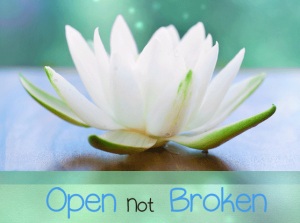Part 1, Part 2, Part 3 and Part 4 ran earlier this week.
 Levine shared image of torrential sea of trauma and person alone in a little row boat.
Levine shared image of torrential sea of trauma and person alone in a little row boat.
Come to a small land mass and person gets on island.
Still a sea of trauma raging. Then another island (another corrective experience) and then another island.
The islands come together.
They merge.
A substantial land mass forms.
He said, that’s how one can look at trauma around you without danger of being in a small boat capsized and drowned.
He said, that’s the difference between reliving and revisiting trauma.

All of this has to be through implicit level. It has to be felt through bodily felt sense. It’s the only way it can happen. It’s the only way core experience of trauma can change.
Then emotions change.
Then new episodic memories.
Then we can form coherent narrative.
Levine said it’s not that declarative memory has no function. It does. It’s really important. It’s now useful in looking at life when one can say, ‘This happened then (the trauma) but also seen in context where person finds power. Can see… I found power again that had been lost.’
 Levine said person can see that they have made changes, has capacities they might not have had, can really feel own power, knowing
Levine said person can see that they have made changes, has capacities they might not have had, can really feel own power, knowing
‘yes it was difficult,and yes it (also)put me in contact with powers I would regret not having.’
That’s the narrative we can tell ourselves that makes narrative sense.’
Last question asked by host in the Rethinking Trauma series went to Peter Levine:
Q)Where do you think field of trauma treatment going?
A)it’s a good question. Well I think it’s gone through phases. And, I was fortunate when I made my discoveries in 1969. Trauma not defined as PTSD. And so I had the disadvantage (or advantage) that I didn’t know it was brain trauma that’s incurable.
We’ve gone past that – many (treatments) shown to have efficacy (and new thinking about plasticity of brain).
Next, Levine said, is how central role of body is. When our body experiences hopelessness, overwhelm and freeze that’s all we experience. Trauma remains untouched (without involving body/implicit memory). That’s the next phase, and development of really-informed trauma therapies.
- More articles.
- More books.
These are really really exciting times, he said. In ten years we will be looking at in a way different than previous ten years.
My note: Start yoga, guided imagery or free-writing. Don’t wait!
We deserve to: 
You Matter Mantras
- Trauma sucks. You don't.
- Write to express not to impress.
- It's not trauma informed if it's not informed by trauma survivors.
- Breathing isn't optional.
You Are Invited Too & To:
- Heal Write Now on Facebook
- Parenting with ACEs at the ACEsConectionNetwork
- The #FacesOfPTSD campaign.
- When I'm not post-traumatically pissed or stressed I try to Twitter, Instagram & Pinterest.
[…] Peter Levine: Veterans, Sacred Traditions, Therapist Bias & The Future of Trauma Treatment, Blog 1, Blog 2, Blog 3, Blog 4, Blog 5 […]